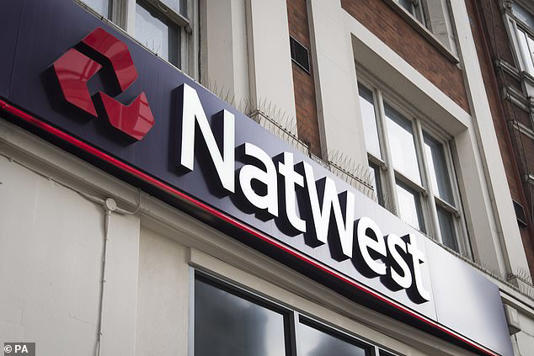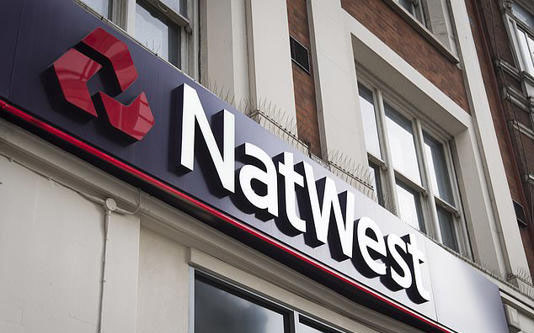The partly-state-backed lender said it made pre-tax operating profits of £1.1billion in the third quarter, up 11 per cent on last year but £300million lower than the previous quarter and slightly less than the £1.2bn forecast by analysts.
Like its peers, NatWest benefited from rising interest rates, but it also set aside more cash for potential losses from loans, even though chief executive Alison Rose said it was ‘not yet seeing signs of heightened financial distress’.

Net interest margin – or the difference between how much a bank earns in interest on loans compared to what it pays on deposits – rose to 2.99 per cent from 2.72 per cent.
Net interest income jumped significantly to £7billion in the first nine months of the year, from £2.6billion in the same period in 2021.
But the bank set aside an additional £247million in the quarter to reflect a deteriorating economic picture that could lead to more people falling behind with their loan payments.
‘At a time of increased economic uncertainty, we are acutely aware of the challenges that people, families and businesses are facing up and down the country,’ Rose said.
‘Although we are not yet seeing signs of heightened financial distress, we are very conscious of the growing concerns of our customers and we are closely monitoring any changes to their finances or behaviours.’
“Although we are not yet seeing signs of heightened financial distress, we are very conscious of the growing concerns of our customers “
NatWest CEO, Alison Rose
Despite rising mortgage rates, NatWest increased its lending to customers, handing out £11billion in new mortgages in the quarter.
“Although we are not yet seeing signs of heightened financial distress, we are very conscious of the growing concerns of our customers “
NatWest CEO, Alison Rose
Despite rising mortgage rates, NatWest increased its lending to customers, handing out £11billion in new mortgages in the quarter.
Article courtesy of Camilla Canocchi for Thisismoney.co.uk – 10:40am Fri 28th Oct 2022 – NatWest reports profits just shy of expectations and higher bad debt provisions despite no signs ‘yet’ of financial distress among customers (msn.com)

